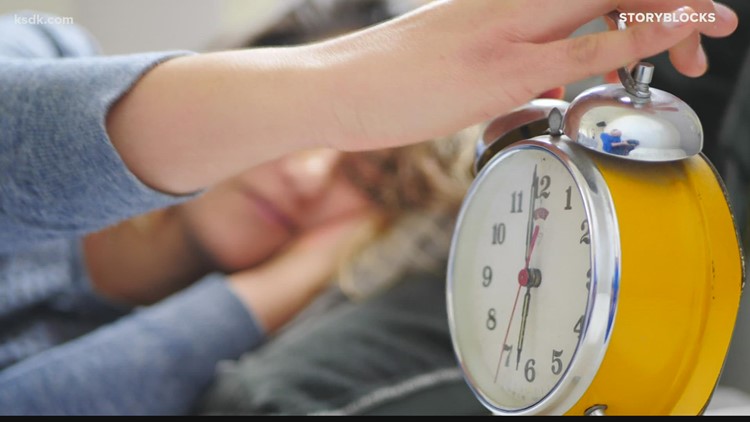ST. LOUIS — As daylight saving time comes to an end, it's time to get ready for longer nights.
This year, daylight saving time ends Sunday, Nov. 6. At 2 a.m., we will "fall back" one hour granting most people an extra hour of sleep.
The observance has a history of legislation and possibly more changes coming soon. But, this time also reminds people of safety tips and health effects that come with this time change.
What is daylight saving time?
Daylight saving time (DST) is the practice of moving clocks forward one hour in the spring and back one hour during the fall. Moving them forward in the spring allows for more daylight during the summer evenings. In the fall, moving them backward grants us more daylight during the winter mornings.
The practice has been implemented in some form dating back to pre-World War I. Germany originally introduced the practice to conserve power and energy.
In 1918, The Standard Time Act was first introduced to American clocks and residents. It was a temporary measure that lasted from spring to fall that also was used to cut energy costs during WWI.
The act is responsible for the five time zones that are still in place today.
In 1966, The Department of Transportation was created and given regulatory power over time zones and daylight saving time.
The department then created the Uniform Time Act of 1966 to correct confusing and alternating time zones by seeking out a nationwide standard for daylight saving time. This spanned from the last Sunday in April to the last Sunday in October.
The most recent change to daylight saving time was in 2005 when former President George Bush changed the law, now observing the practice from the second Sunday in March until the first Sunday in November.
Latest legislation
While most of the United States observes daylight saving time, Arizona and Hawaii do not.
Under current federal law, states are allowed to opt out of the observance and remain on standard time.
Congress is the only one that can change the observance period. Since 2015, at least 45 states have proposed bills to change their observance.
The Sunshine Protection Act was approved by the U.S. Senate and could change the clocks again in 2023. The act, introduced by Republican Florida Sen. Marco Rubio, proposes permanent daylight saving time for all states.
If it becomes law, clocks will spring forward in March and would not change come Nov. 5, 2023.
The act remains awaiting review from the House.
'Change Your Clocks, Change Your Batteries'
Daylight saving time is a perfect opportunity to not only change your clocks, but also change the batteries in your smoke detectors.
"Change Your Clocks, Change Your Batteries" is an annual fire safety campaign that reminds people of the importance of working smoke alarms and carbon monoxide detectors.
"The National Fire Protection Association reports that 71% of smoke alarms which failed to operate had missing, disconnected or dead batteries," according to Energizer's website.
Missouri Department of Public Safety recommends changing the battery in smoke detectors twice a year, once in the spring and once in the fall, following the campaign.
Daylight saving time and your health
When the time "falls back," there are concerns about different mental and physical effects.
"There are studies that say both spring ahead and fall back cause more problems to mental health, often spring ahead more because you lose the hour," said Dr. Jessi Gold with Washington University's School of Medicine - Psychiatry.
Changing the clocks back or "falling back" still causes mental health issues, including depression.
Many symptoms people see during this time are low mood, feeling depressed, anhedonia, sleeping more, trouble concentrating and more.



